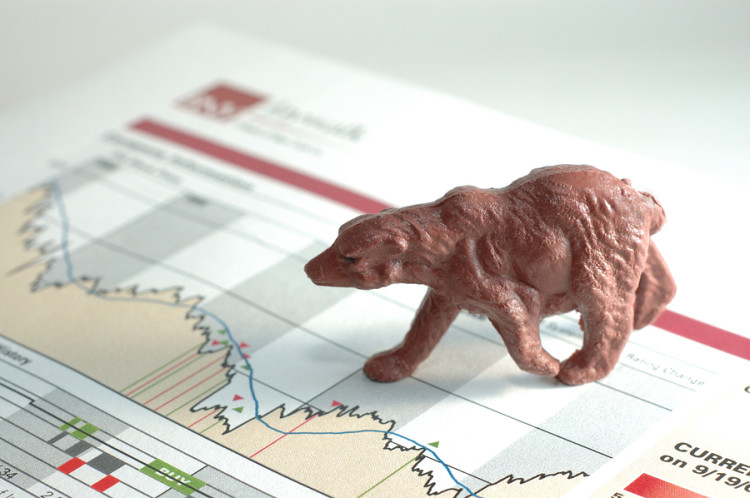Is There Such a Thing as Reliable Economic Growth Data?

©2016 Bloomberg News
O0GDWI6JTSEB
O0GDWI6JTSEB
(Bloomberg) — Statistics surrounding economic growth are flawed at best, yet investors and officials rely on them.
To show how uncertain the numbers can be, London-based research firm World Economics set out to rank 154 countries according to the reliability of their gross domestic product statistics. “Without accurate and reliable data, poor decisions can be made and the consequences can be serious,” Chief Executive Ed Jones wrote in an e-mail. “Many observers see reported figures and believe that they are accurate without question” because they’re released by the government. The idea behind the Data Quality Index, which was launched last month, is to make people aware that GDP means different things in different countries, even if they get compared all the time.
The index is calculated using five criteria: * the base year used;
To show how uncertain the numbers can be, London-based research firm World Economics set out to rank 154 countries according to the reliability of their gross domestic product statistics. “Without accurate and reliable data, poor decisions can be made and the consequences can be serious,” Chief Executive Ed Jones wrote in an e-mail. “Many observers see reported figures and believe that they are accurate without question” because they’re released by the government. The idea behind the Data Quality Index, which was launched last month, is to make people aware that GDP means different things in different countries, even if they get compared all the time.
The index is calculated using five criteria: * the base year used;
* the international method followed for compiling GDP (the more recent, the better);
* the size of the informal economy, which is never fully accounted for;
* GDP per capita, as a proxy for how much states can spend on collecting data and measuring economic activity;
* corruption, as measured by Transparency International.
Countries receive different grades for each input, with 100 the best possible total score. Two further criteria — the sizes of government and the financial sector — will be included in the index calculations in 2016.
It’s no surprise that the poorest economies gravitate toward the bottom. Take the base-year effect. This is a calculation used to strip out price changes when measuring the total value of economic output. However, if the base year isn’t updated regularly, then variations in the prices of goods may be missed and new industries such as the Internet or mobile phones may be underrepresented in GDP data. Many developing economies use fixed, outdated benchmark years and end up with data that doesn’t reflect how economies transform over time. Altering the base year can have a drastic effect: When Nigeria updated its in 2014, the economy’s estimated size in 2013 surged 89 percent, according to Bloomberg Intelligence. In contrast, most rich nations regularly update the base year used. That requires a lot more work, and hefty resources. In differentiating developed economies, GDP per capita is key factor, propelling Switzerland to the top, followed by the U.S. Varying scores on corruption also come into play, putting Finland, for instance, ahead of France. In Asia, Hong Kong and Singapore make it to the top 10 globally, while Myanmar’s statistics are the least trustworthy, coming at 142nd place. On India and China, whose GDP figures are distrusted to the extent that some economists look at other data for the economic pulse, World Economics ranks them 53rd and 63rd respectively.
Based on the research firm’s own sales managers indexes, India’s growth is in line with official numbers, Jones said. “In contrast, our China Index is showing much more muted levels of growth in the region of about half the official data suggests.”
It’s no surprise that the poorest economies gravitate toward the bottom. Take the base-year effect. This is a calculation used to strip out price changes when measuring the total value of economic output. However, if the base year isn’t updated regularly, then variations in the prices of goods may be missed and new industries such as the Internet or mobile phones may be underrepresented in GDP data. Many developing economies use fixed, outdated benchmark years and end up with data that doesn’t reflect how economies transform over time. Altering the base year can have a drastic effect: When Nigeria updated its in 2014, the economy’s estimated size in 2013 surged 89 percent, according to Bloomberg Intelligence. In contrast, most rich nations regularly update the base year used. That requires a lot more work, and hefty resources. In differentiating developed economies, GDP per capita is key factor, propelling Switzerland to the top, followed by the U.S. Varying scores on corruption also come into play, putting Finland, for instance, ahead of France. In Asia, Hong Kong and Singapore make it to the top 10 globally, while Myanmar’s statistics are the least trustworthy, coming at 142nd place. On India and China, whose GDP figures are distrusted to the extent that some economists look at other data for the economic pulse, World Economics ranks them 53rd and 63rd respectively.
Based on the research firm’s own sales managers indexes, India’s growth is in line with official numbers, Jones said. “In contrast, our China Index is showing much more muted levels of growth in the region of about half the official data suggests.”
To contact the author of this story: Sandrine Rastello inMumbai at srastello@bloomberg.net To contact the editors responsible for this story: James Mayger at jmayger@bloomberg.net Iain McDonald at imcdonald7@bloomberg.net



No Comment